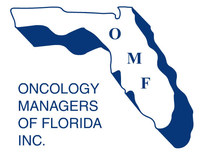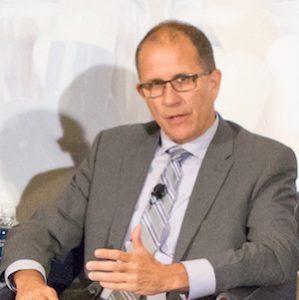HHS's Federal Action Plan for Drug Importation

On May 24, 2022, PSM held an online congressional briefing with a panel of experts to let legislators know why drug importation is a dangerous proposition. Watch briefing highlights or the entire event.
Current status:
The regulations took effect on November 30, 2020. PSM, PhRMA, and CAHC have filed suit in federal court to block them from taking effect.
On May 28, 2021 the Department of Health and Human Services filed a motion to dismiss the suit on the grounds that PSM, PhRMA, and CAHC did not have grounds to sue until the government had approved a state importation program.
PSM, PhRMA, and CAHC filed an amended complaint on July 2, 2021.
In the meantime, Colorado and Florida have submitted applications to begin state importation programs.
The State of Florida and Florida's Agency for Health Care Administration filed suit against the FDA and Department of Health and Human Services for delaying approval of its state importation program in August 2022.
Synopsis:
On September 24, 2020, the federal government released a Final Rule on Canadian drug importation (pathway 1), as well as Industry Guidance for manufacturer reimportation (pathway 2), and requests for proposals for waivers for individual prescription drug importation (pathway 3) and insulin reimportation programs (pathway 4) with an accompanying FAQ for the latter.
PSM, PhRMA, and CAHC have all filed suit against these regulations. You can read our joint announcement, our explainer about why we filed the litigation, and the complaint itself [PDF].
How should we evaluate this program?
Until July 2019, every head of Health and Human Services and the FDA since 2003 has refused to certify the safety of drug importation. Many—including Alex Azar, former FDA Commissioner and Trump appointee Scott Gottlieb, and his four immediate predecessors—have explicitly criticized these proposals as unsafe, unimplementable, and unlikely to save money.
HHS and FDA haven't implemented their proposals yet so there's no way to evaluate whether they save money or keep patients safe. However previous programs in Maine, Illinois, and Minnesota all shut down because they didn't save the money promised. They all had safety lapses as well.
Official Actions Since the Rule was Approved
June 1, 2021: Florida files an amicus brief in support of HHS's importation rule.
May 28, 2021: HHS files a motion to dismiss the suit.
November 23, 2020: PSM, Pharmaceutical Research and Manufacturers of American and The Council for Affordable Healthcare file a complaint alleging that the Final Rule disregards key protections of the Federal Food, Drug, and Cosmetic Act
Timeline of the approval of final rule for Canadian drug importation
September 24, 2020 - HHS published final rule for Canadian drug importation, as well as RFPs for personal importation waivers and and reimportation of insulin, and guidance for manufacturers who may choose to reimport their own drugs. (Links to those documents below, in Planning Documents.)
December 23, 2019 - March 9, 2020: HHS solicits comments about RIN 0919-AI45
July 31, 2019:
- HHS Announces New Action Plan to Lay Foundation for Safe Importation of Certain Prescription Drugs
- Remarks on the Safe Importation of Certain Prescription Drugs
August 6, 2019:
August 20, 2019:
- Florida submits a Canadian Prescription Drug Importation Concept Paper to HHS
Fall 2019:
- Office of Information and Regulatory Affairs posts RIN 0910-AI45, a draft of the proposed rule for the importation of prescription drugs.
Planning documents
Pathway 1, Wholesale Canadian Drug Importation: Final rule (PDF, 179 pages) and Redline (shows differences from December's draft rulemaking).
Pathway 2, Manufacturer Reimportation: Guidance for Industry
Pathway 3, Individual Waivers for Personal Importation: Request for Proposals
Pathway 4, Reimportation of Insulin: Request for Proposals and FAQ
Letter from HHS Secretary Alex Azar to House Minority Leader Kevin McCarthy certifying the final rule on wholesale Canadian drug importation, September 23, 2020.
HHS/FDA announces the Safe Importation Action Plan. July 31, 2019
Section 804 of the Food, Drug and Cosmetic Act which outlines the method by which the Federal government may import medicine from Canada.
Background / resources
Just learning about foreign drug importation proposals? Start with some of these resources that outline the safety issues.
PSM Materials:
- Learn about failures to save money and keep patients safe in previous importations programs in Maine, Illinois, and Minnesota.
- Every head of Health and Human Services and the FDA since 2003 has refused to certify the safety of drug importation
- Importation has been opposed by dozens of groups representing law enforcement, patients, regulators, and healthcare professionals for nearly two decades.
- Drug importation endangers U.S. patients by breaking our closed, secure drug supply
- Common misconceptions about drug importation
Challenges to importation:
- Canadian patient groups, healthcare groups, boards of pharmacy and the Canadian government have not agreed to importation.
- A 2018 study by PSM board member and pharmaco-economist Dr. Marv Shepherd shows that if 20% of U.S. prescriptions were filled using Canadian prescription drug sources, the Canadian drug supply would be exhausted in 183 days.
- Dr. Kristina Acri's analysis shows that importation programs are unlikely to save money because of the costs of testing medication and treating patients who encounter counterfeits.
- Importation breaks Track and Trace systems which have been in-process since 2013, when Congress passed the Drug Supply Chain Security Act.
- State Drug Importation Laws Undermine the Process That Keeps Our Supply Chain Safe (July 11, 2019)
- In February 2017, Alan Coukell, the senior director of health programs for the Pew Charitable Trusts wrote Senator Bernie Sanders, to raise concerns about the effect of importation on the pharmaceutical supply chain security provisions.
- To learn more about Track and Trace, consult the FDA and RXTrace
Coverage:
- Everything (or almost everything) you need to know about importing drugs from Canada, July 31, 2019
- Canada wasn’t consulted on specifics of U.S. plan to import prescription drugs, July 31, 2019
- U.S. demand is threatening Canada's drug supply, groups warn feds, July 26, 2019
- Exclusive: Canada warns U.S. against drug import plans, citing shortage concerns, July 18, 2019
- HHS Secretary Alex Azar dismisses drug importation as a gimmick, May 14, 2018
Op-eds from the Experts
In this piece, which was published in the Inside Sources on April 22, 2019, Michael Graham reviews the case against drug importation: “As Scott Gottlieb said in 2016 before becoming President Trump’s FDA chief…’There are simply too many channels for fake drugs to enter any importation scheme to forgo some meaningful controls.’”
In this editorial, which was published in the Palm Beach Post on April 22, 2019, Michelle Flowers writes about Florida’s history of black market cancer treatments and the danger importation poses to patients. Flowers is president of the Oncology Managers of Florida.
In this editorial, which was published in The Santa Cruz Sentinel on April 18, 2019, business columnist Jeffrey Scharf argues that importation of prescription drugs is a plan that is too good to be true.
In this editorial by Terry Wilcox published in Inside Sources on April 18, 2019, Terry Wilcox, executive director of a patient advocacy organization advices federal and state representatives that allowing drug importation is not the right policy solution for America’s high prescription drug prices…
In this editorial, which was published in Colorado Politics on April 17, 2019, Don Bell, a 30-year veteran of Canadian law enforcement and border protection, warns that Canadian drug importation will open the U.S. to counterfeit medicine and exacerbate drug shortages in Canada.
The editorial board of the The Wall Street Journal published this editorial on April 15, 2019. In it, they write:
“The argument that drug importation threatens the integrity of the drug supply is often dismissed because pharmaceutical lobbyists make it. But keeping the drug supply free from contaminated or counterfeit products is not easy, and the World Health Organization has warned that 1 in 10 medical products in the developing world are phony. It isn’t clear who is liable if counterfeits are found in Florida, but you can bet it won’t be the politicians.”
In this editorial, which was published in The Gadsden Times on April 11, 2019, former FDA-OCI director George Karavetsos points out the real dangers of drug importation:
“Even today, Americans are being hurt and even dying because of counterfeit medications being imported into this country. Adding insult to injury, while some might point to Canada as being a safe source, counterfeit medications are transshipped through Canada from other countries in remote corners of the globe.”
This editorial by Dan Fucarino was published in Florida Politics on April 1, 2019. Mr Fucarino is the owner and a pharmacist at Carrollwood Compounding Center & Pharmacy.
“The monetary rewards of Canadian prescriptions are just not worth their safety risks,” he warns. “I urge Florida legislators to listen to health care experts on this issue rather than the understandable populist appeals and vote no on this dangerous legislation — and then get back to working on more productive ways to lower drug prices for Floridians. Thousands of Americans have been injured or killed by imported prescription drugs.”
In this March 28, 2019 editorial for the La Junta Tribune-Democrat, Maine pharmacist Amelia Arnold explains her state’s experience with drug importation: “It is a concept that makes big promises in terms of quality and cost savings that it cannot, and will not, deliver on for the people of Colorado.”
These dangerous drugs get trafficked into Colorado and present a clear and present danger to unsuspecting citizens, who can die from simply ingesting what they think are safe medications. Importing foreign drugs would open a loophole, which increases the chance these dangerous counterfeits enter America unbeknownst to us all.









